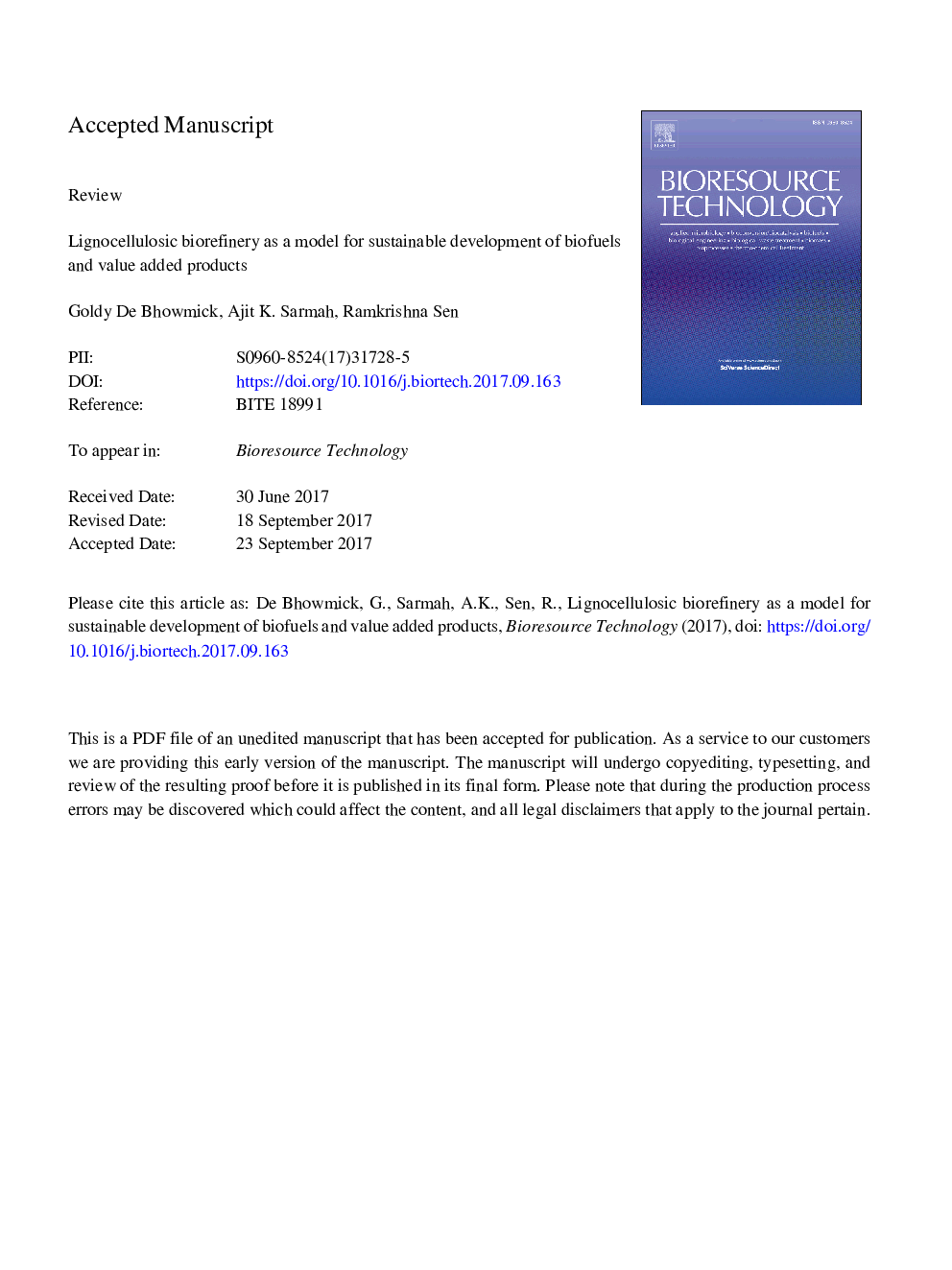| Article ID | Journal | Published Year | Pages | File Type |
|---|---|---|---|---|
| 7069313 | Bioresource Technology | 2018 | 48 Pages |
Abstract
A constant shift of society's dependence from petroleum-based energy resources towards renewable biomass-based has been the key to tackle the greenhouse gas emissions. Effective use of biomass feedstock, particularly lignocellulosic, has gained worldwide attention lately. Lignocellulosic biomass as a potent bioresource, however, cannot be a sustainable alternative if the production cost is too high and/ or the availability is limited. Recycling the lignocellulosic biomass from various sources into value added products such as bio-oil, biochar or other biobased chemicals in a bio-refinery model is a sensible idea. Combination of integrated conversion techniques along with process integration is suggested as a sustainable approach. Introducing 'series concept' accompanying intermittent dark/photo fermentation with co-cultivation of microalgae is conceptualised. While the cost of downstream processing for a single type of feedstock would be high, combining different feedstocks and integrating them in a bio-refinery model would lessen the production cost and reduce CO2 emission.
Related Topics
Physical Sciences and Engineering
Chemical Engineering
Process Chemistry and Technology
Authors
Goldy De Bhowmick, Ajit K. Sarmah, Ramkrishna Sen,
